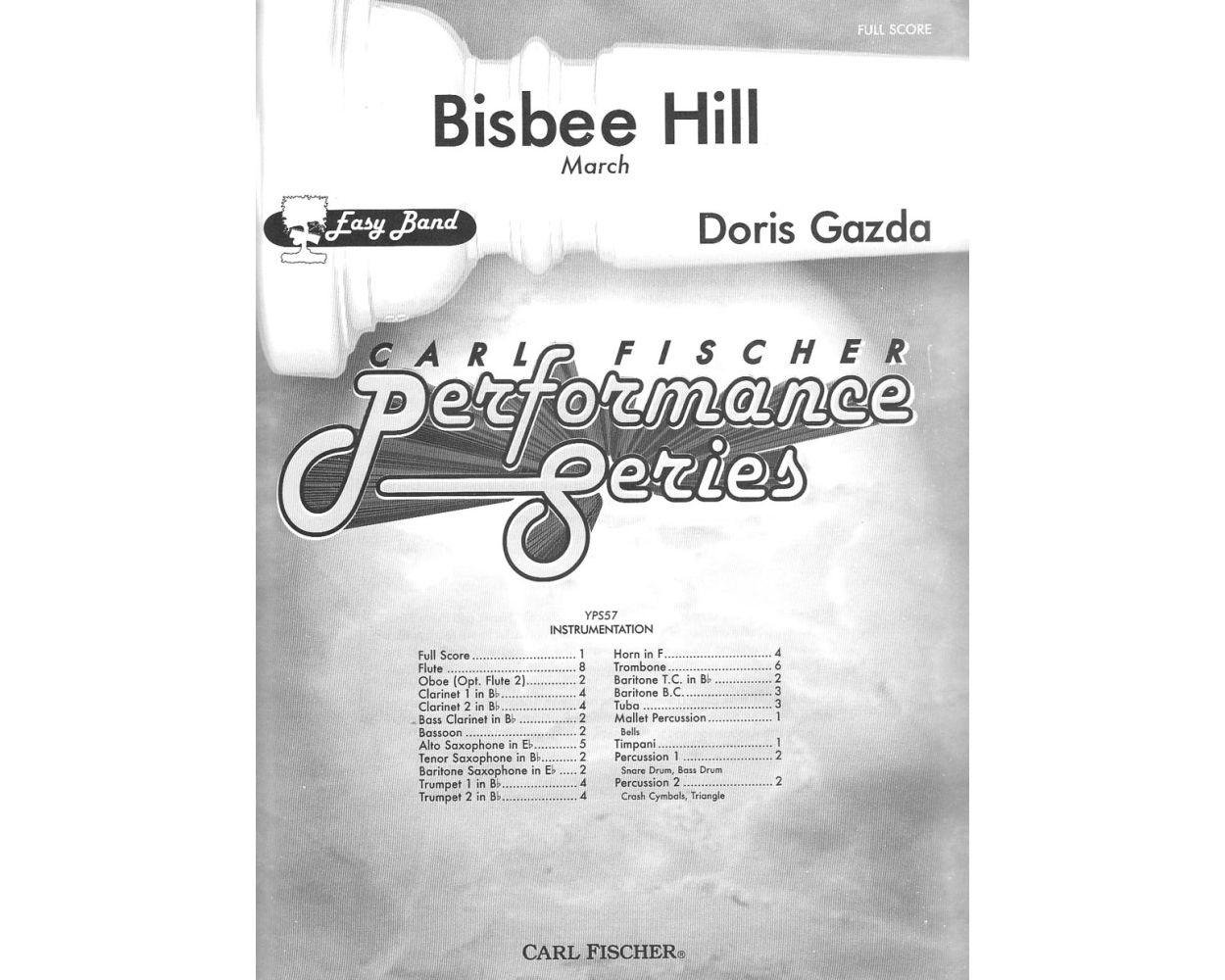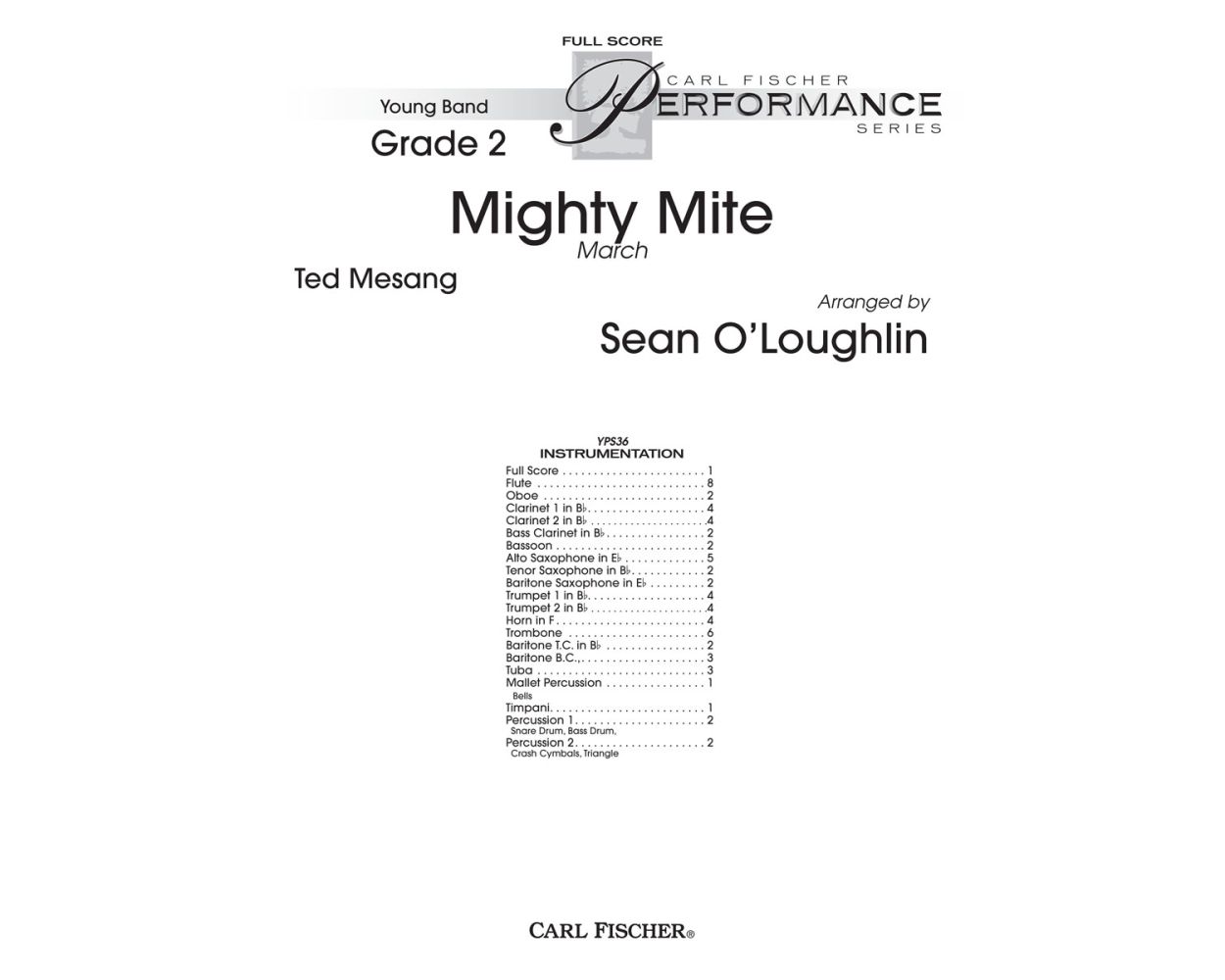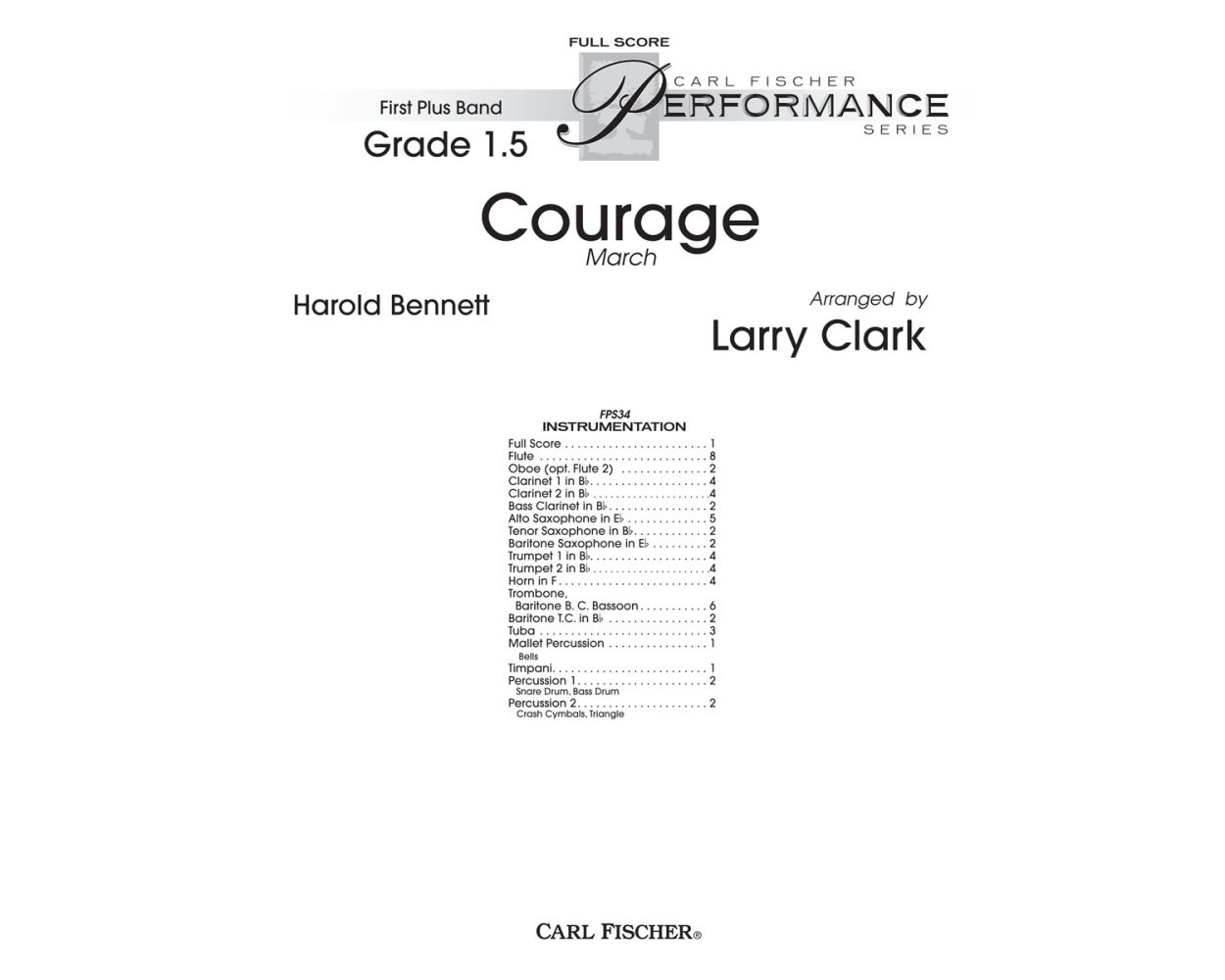Results
-
 £53.00
£53.00Bisbee Hill
Bisbee, a small town southwest of Tucson, Arizona, is best known as the home of the Copper Queen Mine, one of the richest mineral sites in the world. Composer Doris Gazda uses here experience as a band director to give us a well constructed, tuneful and easy to play concert march.
Estimated dispatch 12-14 working days
-
 £10.00
£10.00The Show Boy - William Huff
Here is one of the standard marches from the old Fillmore Bros. catalog. Considered one of Will Huff's best marches, the piece is tuneful and easy enough for most high school bands to be able to play. A perfect contest warm-up march!
Estimated dispatch 12-14 working days
-
 £53.00
£53.00Mighty Mite (March) - Ted Mesang
All the sections of the band get to shine in this sparkling march arrangement. On the easy side of medium-easy, this is a nice, bright, feel-good march.
Estimated dispatch 12-14 working days
-
 £46.00
£46.00Courage (March) - Harold Bennett
In this easy arrangement by Larry Clark, Courage is a little gem in the repertoire that every young band deserves to have in its library. Highly recommended.
Estimated dispatch 12-14 working days
-
 £50.50
£50.50Holiday Party Mix
Get the party started with this energetic, upbeat medley of holiday favorites arranged by William Owens! Featuring "Jingle Bells," "Jolly Old Saint Nicholas," "Good King Wenceslas," "Up on the Housetop," and "Ode to Joy," the music may play very easy, but it grooves really hard!
Estimated dispatch 7-14 working days
-
 £53.50
£53.50Crazy Train - Bob Daisley
Every section of the band will have fun with this easy arrangement of Ozzy Osbourne's iconic rock anthem. From the signature bass line riff to the driving rock pulse, this is sure to be a hit with all audiences.
Estimated dispatch 7-14 working days
-
 £60.50
£60.50Breakneck! - Tyler Arcari
Imagine flying down the streets at breakneck speed! This high-wire work for developing bands is an intense ride from start to finish! Easy 8th-note patterns create an anchor-point for this work while a clever use of percussion equipment, upper brass "honks", and cool harmonic tension transport you behind directly behind the wheel!
Estimated dispatch 7-14 working days
-
 £60.50
£60.50Christmas Stars - Larry Clark
Veteran composer and arranger Larry Clark has crafted a masterful mashup of familiar carols and holiday songs in this easy medley. Your students and audience will enjoy this engaging and entertaining combination of familiar music.
Estimated dispatch 7-14 working days
-
 £49.50
£49.50Binary 0101 - Laura Estes
This new work in C Minor is a great new introductory work for your beginning musicians! Easy use of rests on beat one makes for a truly teachable piece while being fun and accessible. They are going to ask to play this one over and over!
Estimated dispatch 7-14 working days
-
 £53.50
£53.50Pat-a-Pan - Bernard de la Monnoye
Using limited ranges and easy rhythms, Robert Longfield has skillfully arranged this classic French carol for second year players. With a captivating underlying pulse the woodwinds are featured on the melody with trumpet figures echoing. Then later the brass take their turn with the melody. Effectively arranged for all sections of the band.
Estimated dispatch 7-14 working days
